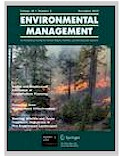| Journal Article |
 |
|
| Article Title | Integrative Management of Commercialized Wild Mushroom: A Case Study of Thelephora ganbajun in Yunnan, Southwest China | | Author | Jun He, Zhi Mei Zhou, Huixian Yang and Xu Jianchu | | Year | 2011 | | Journal Title | Environmental Management | | Institution | Springer Science+Business Media B.V | | Volume | 48 | | Issue | 1 | | Pages | 98-108 | | Call Number | JA0411-11 | | Keywords | Non-timber forest products (NTFPs), Fungi, Interdisciplinary research, Community-based natural resource management, Indigenous knowledge, Participatory action research |
|
| Abstract: |
| The management of wild mushroom is interdisciplinary in nature, whereby the biophysical considerations have to be incorporated into the context of a wide range of social, economic and political concerns. However, to date, little documentation exists illustrating an interdisciplinary approach to management of wild mushrooms. Moreover, the empirical case studies necessary for developing applicable and practical methods are even more rare. This paper adopted an interdisciplinary approach combining participatory methods to improve the habitat management of Thelephora ganbajun, an endemic and one of the most economically valuable mushroom species in Southwest China. The paper documents an empirical case of how an interdisciplinary approach facilitated the development of a scientific basis for policy and management practice, and built the local capacity to create, adopt and sustain the new rules and techniques of mushroom management. With this integrative perspective, a sustainable management strategy was developed, which was found not only technically feasible for farmers, but also acceptable to the government from an ecological and policy-related perspective. More importantly, this approach has greatly contributed to raising the income of farmers. The paper highlights how the integration of biophysical and socioeconomic factors and different knowledge systems provided a holistic perspective to problem diagnosis and resolution, which helped to cope with conventional scientific dilemmas. Finally, it concludes that the success of this interdisciplinary approach is significant in the context of policy decentralization and reform for incorporating indigenous knowledge and local participation in forest management. |
|